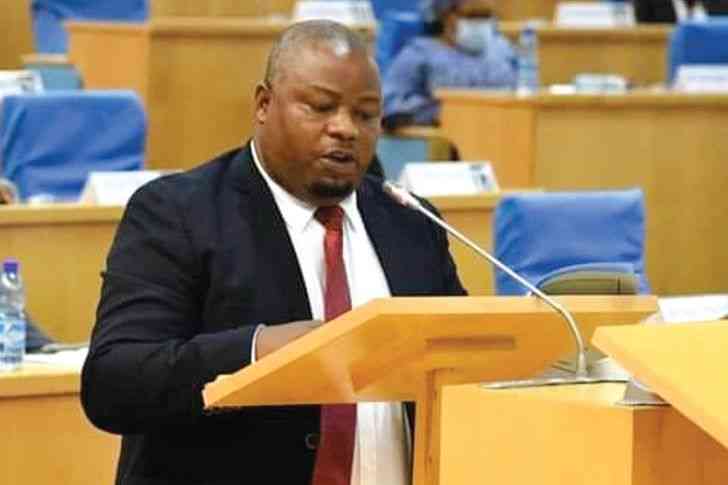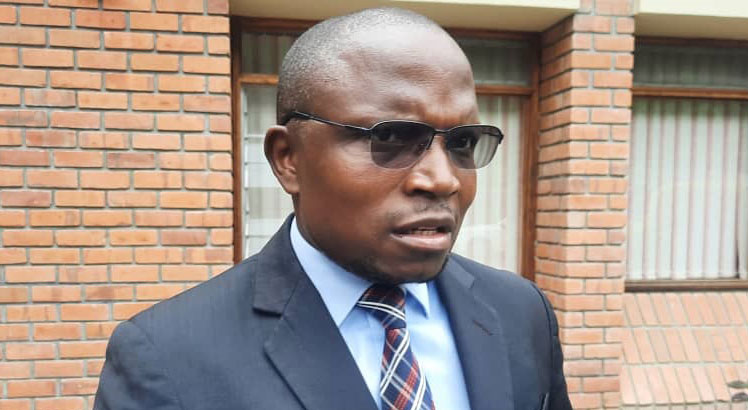Spotlight on court abuses
Legal experts say courts are largely responsible for their abuse and stalling of cases by granting interim orders and thereafter not ensuring substantive legal action commences.
But the courts say Malawi practises the British common law which states that the court has to be moved first.
Justice Link executive director Justin Dzonzi said in a telephone interview last week that some lawyers abuse the courts when they get an injunction practically on everything, even when they know that the stay order may not necessarily and effectively serve the purpose.
He says in some cases, such lawyers don’t even commence substantive legal proceedings after the injunction is granted, leading to cases stalling for so many years.
Dzonzi said this is pure abuse of the court process. He argued that the courts have powers to stop this because an injunction is a temporary remedy and that the courts ought to police it vigilantly by adopting a process where they give time-bound injunctions.
He said: “For example, we have seen cases whereby a person who is being investigated goes to court to get an injunction to stop the investigations or someone who is about to be arrested goes to court to get an injunction to stop his arrest.

“All of these, seriously speaking, are abuses of the court process. So if one was to apportion blame, I would apportion blame this way: the courts are to blame up to 70 percent. This is because they have the final say on these matters, but they don’t stop such abuses.”
Dzonzi observed that depending on the matter, the court can give an injunction for seven days, 21 days or 30 days even three months, pending a continuous process of review in between.
He, therefore, urged the Judiciary to seriously reorganise itself around the issues of injunctions or alternatively to tighten up the civil procedural rules by putting safeguards.
Agreeing with Dzonzi on stalled interim court orders, Malawi Law Society (MLS) executive secretary Gabriel Chembezi said in a WhatsApp response this week that the issue of matters not being prosecuted after an interim order has been granted forms part of the backlog of cases in courts.
“The Malawi Law Society is pushing for the enactment of the Judicial Services Administration Bill to address the issue of delivery of justice.
“The matter is multifaceted. One of the problems is that litigants do not take further steps once they get the interim injunctions.”
Chembezi, however, said: “In civil matters, courts have at their disposal aides that assist in case management which include ‘unless orders’ (warnings) that if a party fails to take further steps within a particular period then the matter may be dismissed. Courts may also dismiss matters outright if a party fails to take any action after 12 months.”
But High Court and Malawi Supreme of Appeal Registrar Kondwani Banda holds a different view, saying the country practises the British common law, which states that the court has to be moved first.
Banda stressed that an ex-parte injunction is granted on the premise that there is something that if left un-acted on, then there won’t be anything that would actually put the person in position he would have been had it been that the court had granted the same.
He said: “When they say the Judiciary is not doing enough, what is it that we are not doing, because the court is supposed to be moved? The court cannot act outside the law.”
He further said the Judiciary is not there to legislate but to interpret, protect and defend the Constitution in accordance with Section 9 of the Constitution.
Asked on outstanding injunctions granted on Section 65, he said that the matters are debatable and that it is insensitive for the Judiciary to comment to avoid pre-empting the matter.
Weekend Nation reviewed some cases involving members of Parliament (MPs) who were supposed to have been affected by the provision of Section 65 after crossing the floor in the House but after getting a court injunction on the matter, none yielded results except for one former Mwanza legislator, the late Fred Nseula, in 1995.
Since the Nseula case, no legislator has lost their seat in Parliament for crossing the floor.
The Section stipulates that if a member of Parliament (MP) voluntarily leaves a party that sponsored him or her into Parliament to join another one equally represented in the House or a political grouping whose activities/objectives are political, the legislator should be deemed to have crossed the floor and consequently lose his or her seat.
For instance, some three opposition United Democratic Front (UDF) MPs joined the then ruling People’s Party (PP) in 2013.
The three included Mangochi North’s Ibrahim Matola, who was also Minister of Energy, Mangochi North East MP Alfred Mwechumu and Shamil Asibu for Mangochi South West
At the time, at least 40 other legislators risked being thrown out of the House as they were deemed to have crossed the floor but some of them applied for a court injunction, restraining the Speaker from declaring their seats vacant. After getting the interim orders, no further legal action was taken against them.
In 2015, the Malawi Supreme Court of Appeal granted 11 UDF MPs an injunction pending judicial review on the Speaker’s impending decision on Section 65 after they joined the DPP administration in a working relationship. The matter did not go beyond the interim order.
In 2018, Forum for National Development (FND) wanted the court to restrain then Speaker of Parliament Richard Msowoya from discharging his duties for ditching the opposition Malawi Congress Party (MCP) and joining UTM. After a court injunction, the case died a natural death.
In an earlier interview Edge Kanyongolo, retired associate professor of law at Chancellor College, said the Section 65 provision would only be successfully implemented if title deeds of execution were removed from the hands of the Speaker who, in his view, is an interested party.
Attorney General Thabo Chakaka-Nyirenda described Section 65 as academic.
He said: “Considering that the MPs who were caught by Section 65 either served their terms or died, the case is otiose. The outcome of the case will not serve any practical purposes.”
On his part, private practice lawyer John Gift-Mwakhwawa pointed out that without looking at the developments on the court docket, one would have to be careful in apportioning blame because the delay could be caused by either of the parties, namely, Judiciary, claimant or defendant.
He argued that the complainant may not be taking the right process to move the case forward, or the defendants may not be pushing for an early end to the proceedings by either applying to dismiss the matter for want of prosecution.
Said Mwakhwawa: “At the same time, under the current rules, the court has powers by itself to move the case forward. The courts have an active case management system where the judge by himself or herself can issue out processes to invite parties to court and to account for the delay in the proceeding.
“So, if the court is not issuing those processes, or calling parties to account for the delay, most likely it maybe that there are processes that are underway as a result of which its hands are tied.”
Another high-profile case which has stalled after the complainant obtained a court injunction involves Malawi Energy Regulatory Authority (Mera) chief executive officer (CEO) Henry Kachaje who in November 2021 got a court order stopping the release of an investigative report by the office of the Ombudsman into his recruitment.
Last year, the Supreme Court of Malawi dismissed a bid by the Ombudsman to vacate an order validating Kachaje’s employment status, arguing it was premature as the High Court was yet to hear the full matter following the injunction.
There is also a stalemate in Parliament following a court order obtained by some 22 legislators in June 2022 challenging the removal of embattled incumbent leader of opposition Kondwani Nankhumwa from his position.
Initially, the DPP had appointed Mulanje South West MP George Chaponda to replace Nankhumwa but replaced him with Thyolo Thava MP Mary Navicha but Nankhumwa is still clinging to the position.
The development has seen Speaker of Parliament Catherine Gotani Hara recognising both Nankhumwa and Thava as leader of opposition, thereby creating some tensions in the House.





